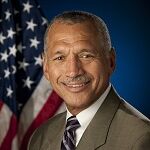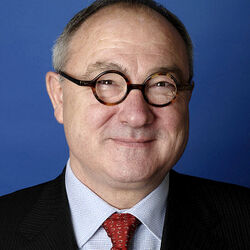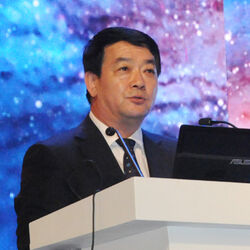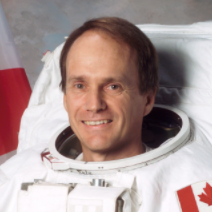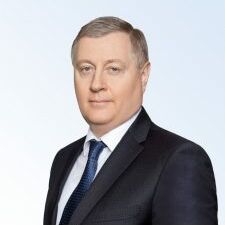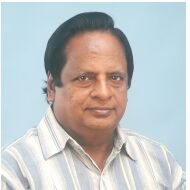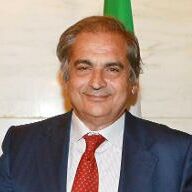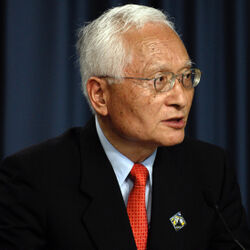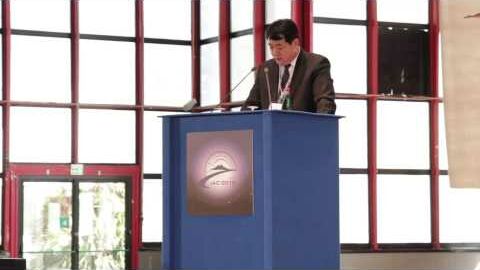Plenary 1: Heads of Agencies
October 1st 2012, 13:30 – 15:00
The leaders of agencies from the United States, Russia, China, Japan, Europe, Canada and India all provided an overview of their current programmes as well as an insight into future plans and potential international cooperation opportunities.
Speaking before an audience of around 2,000 delegates, they were welcomed to the IAC 2012, held in Naples’ Mostra d’Oltremare, by Enrico Saggese, President of the Italian Space Agency (ASI).
Charlie Bolden, NASA Administrator, described 2012 as “an extraordinary year for NASA”, capped by the successful landing of Curiosity on Mars which he described as an international venture based on a US spacecraft, with five new nations ‘landing’ on Mars as a result.
Bolden, a former Space Shuttle commander, said NASA was also eagerly anticipating the forthcoming launch on Sunday of the Falcon 9 rocket carrying the first commercial payload to the International Space Station (ISS) and heralding the start of a new commercial era for NASA.
“In general terms we are facing a fiscal crisis but at the same time trying to maintain a stable budget,” he said. “As with most of us here, the ISS remains the centrepiece of our current human spaceflight endeavours.”
He explained that in collaboration with its international partners, NASA was keen to increase the amount of scientific research carried out on the ISS.
Sergey Saveliev, Deputy Head of Russia’s Federal Space Agency (Roscosmos), said Russia was also looking in difficult times to integrate the development of space technology to support the country’s economy.
“Space affects the economy and as such also has a powerful influence on economic development and growth,” he stated.
He also indicated that on a global scale there was no large-scale problem that could not be solved in some way through international cooperation.
Saveliev stressed the importance of international cooperation based on mutual interests, citing the example of the development of new integrated space observatories alongside international partners.
He also reflected on recent Russian launch failures which he said were due to both human error and technical malfunctions, adding that steps had been taken to reduce the likelihood of any future accidents.
Jean-Jacques Dordain, Director General of ESA, described the European Space Agency as enjoying its most successful phase ever.
He said the accession of Romania and Poland to ESA – taking the number of Member States to 20 – was a real indicator of this progress.
Dordain also spoke about the ISS from a European perspective, meteorology and science satellites, ATV-4 and the success of this year’s Soyuz and Vega launches from French Guiana.
He said Vega was not only a new kind of launcher but in the background represented a completely new generation of engineers.
Keiji Tachikawa, President of the Japan Aerospace Exploration Agency (JAXA), chose to highlight his agency’s recent achievements by providing very recent results from the Shizuku/AMRS-2 satellite which has confirmed depleting summer ice levels in the Arctic region.
He said JAXA would continue in the challenge to collect and provide data on climate change and global warming to help provide solutions to the crisis facing our planet.
He also spoke about the fourth JAXA astronaut currently on the ISS and said the project was a true symbol of international cooperation.
Japan is also actively promoting cooperation across the Asia region in space endeavours.
Steve McLean, President of the Canadian Space Agency (CSA) and also a former astronaut, recalled the recent 50th anniversary of his country’s first satellite which was a catalyst for giving Canada ‘credibility’ in the worldwide space community.
Five decades later he said his country was also very proud of its latest delivery this August – the Fine Guidance Sensor for the James Webb Space Telescope (JWST), which is being built and launched as an international project to replace Hubble.
This year Canada also extended its commitment to the ISS to 2020 and at the end of 2012 astronaut Chris Hadfield will be launched on a Soyuz rocket to become the second Canadian to make a long duration mission.
He said it was Canada’s intention to expand the use of the ISS for science and also turn it into a test bed for new technology.
One key development under this heading is the development of medical diagnosis tools, initially to be used by astronauts in orbit but later anticipated to have many applications in hospitals on Earth. “It is not quite a ‘tri-corder’ as in the Star Trek TV series but we are certainly getting close,” he quipped.
Yafeng Hu, Executive Vice-Chairman, Coordination Committee for International Cooperation, China National Space Administration (CNSA), China, said his country planned 21 launches in the coming year, some of which would be helping put in place a satellite-based navigation system for people in living China and neighbouring countries.
In the coming five years, China will continue to develop its interests in human spaceflight, lunar exploration and will work on delivering a coordinated plan for the further development of space technology and science, he explained.
P.S. Veeraghavan, Council Vice-Chairman, Indian Space Research Organisation (ISRO), announced that his country had just completed its 100th space mission, following on from a number of successes in the past year.
He also emphasised the cooperation now beginning to take place in Asia and spoke about future missions, including the launch of the first in a series of satellites for an Indian regional satellite system.
Veeraghavan stated that India planned a Mars orbital mission that would be launched late next year.

